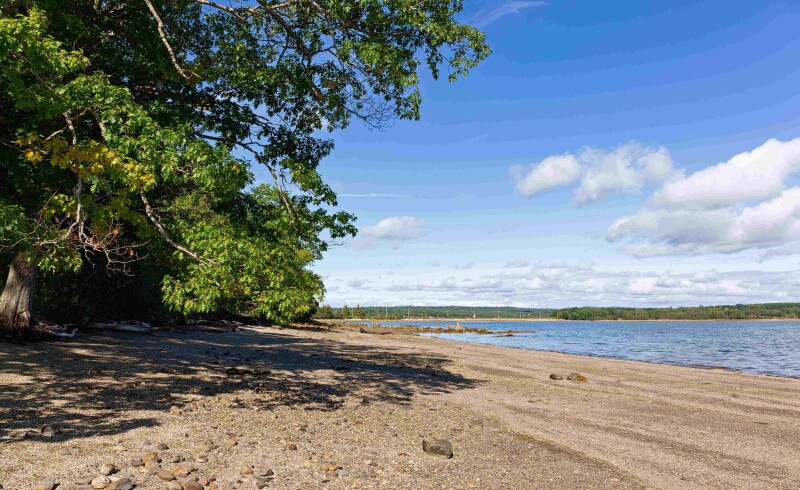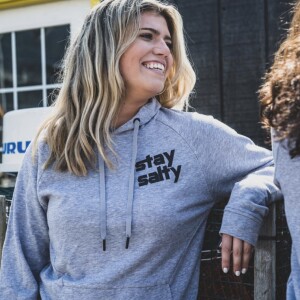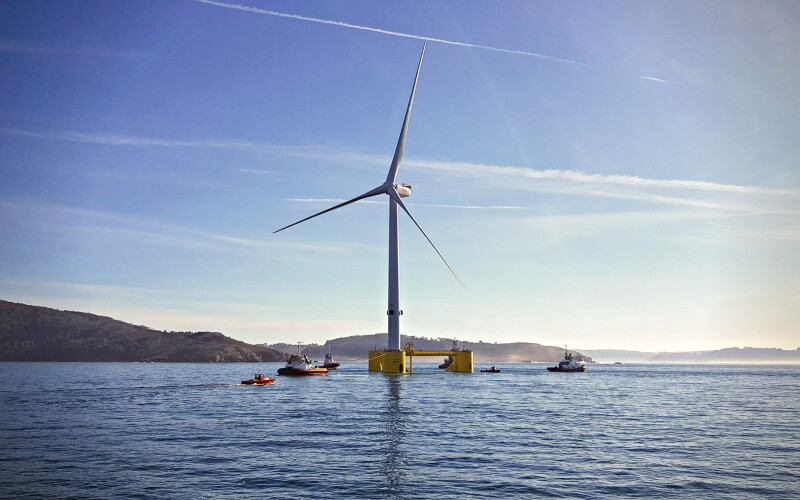Maine Governor Janet Mills announced that the state selected a section of state-owned Sears Island reserved for port development to support the floating offshore wind industry. The site selection followed an extensive public stakeholder process led by the Maine Department of Transportation and Maine Port Authority to consider the State’s primary port development options.
However, in former documentation, locals in the community and commercial fishing groups oppose the development of the port and offshore wind altogether.
Sears Island is a 941-acre island off the coast of Searsport. In 2009, Sears Island was, by agreement, divided into two parcels: approximately 601 acres, or two-thirds of the island, was placed in a permanent conservation easement held by the Maine Coast Heritage Trust, while the remaining one-third, or approximately 330 acres, was reserved by MaineDOT for future development.
.webp.medium.800x800.webp)
The site selected by the State today is expected to be about 100 acres in totality, which is about one-third of the State-owned parcel or a little more than one-tenth of the entire island. Sear’s Island remains undeveloped and provides public recreational use and ecological services to Maine and its fisheries.
The State has concluded that the Sears Island parcel is the most feasible port development site regarding location, logistics, cost, and environmental impact based on input from port and offshore wind stakeholders, including the University of Maine, and on technical and engineering analyses.
The Alliance for Sears Island and numerous allies joined on Feb. 21 on the Belfast Bridge to support keeping the island wild and offshore wind free. Community members in the Belfast area believe that the wind port should belong to Mack Point, a primary port in Penobscot Bay, which is already equipped with two piers for unloading.
In 2007, the State of Maine promised in a written document to choose Mack Point as the preferred location for future marine transportation development. Stating, “Mack Point shall be given preference as an alternative to port development on Sears Island.”
Former Islesboro Select board chair Arch Gillies told the Alliance for Sears Island, “I’m profoundly disappointed in the governor’s breach of the state’s commitment.”
The Islesboro Island Trust (IIT) feels they must intervene using “every legal means available”. IIT supports offshore wind development but strongly feels that the manufacturing facility should be built at Mack Point if it is to be created in Penobscot Bay, ME. The Alliance for Sears Island further shares that building the proposed offshore wind facility on Mack Point represents the least environmentally damaging alternative and favors repurposing outdated and unused industrial energy sites.
 In addition to IIT opposing the site, many fisheries groups, such as the Maine Lobstermen’s Association (MLA), remain against offshore wind development. Fishermen up and down the state have lobbied against the implementation. Maine’s Congressional delegation has also urged the Bureau of Ocean Energy Management (BOEM) to minimize potential conflicts between wind power development and Maine’s fishing industries.
In addition to IIT opposing the site, many fisheries groups, such as the Maine Lobstermen’s Association (MLA), remain against offshore wind development. Fishermen up and down the state have lobbied against the implementation. Maine’s Congressional delegation has also urged the Bureau of Ocean Energy Management (BOEM) to minimize potential conflicts between wind power development and Maine’s fishing industries.
In June 2023, Rep. Jared Golden (D-Maine) introduced a bill in Congress that would block commercial offshore wind development from Lobster Management Area 1 and require a study on how federal agencies are conducting environmental reviews for potential wind projects in the Gulf of Maine.
Patrice McCarron, policy director for the MLA, told NF, “Offshore wind would allow the industrialization of the fragile and productive Gulf of Maine ecosystem, putting wildlife, habitat, commercial and recreational fisheries, and a way of life that has sustained thousands of Maine families for more than a century.”







